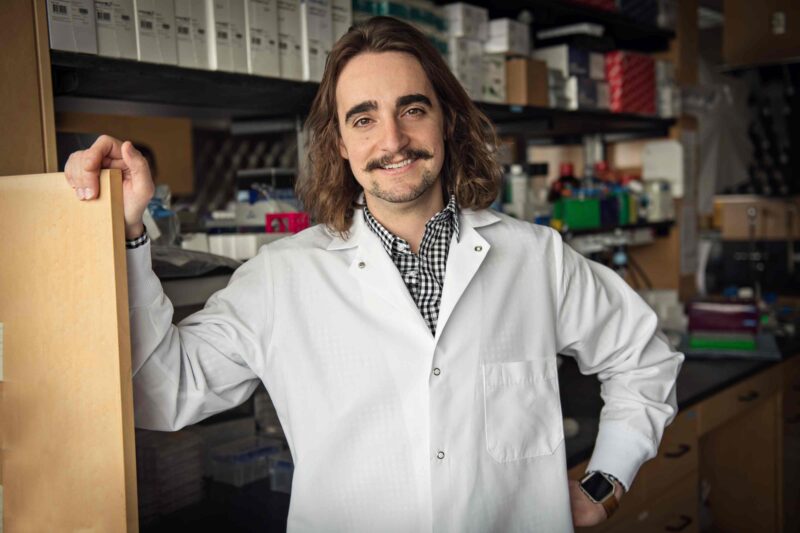Pancreatic tumors are dynamic pseudo-organs that contain numerous cell types interacting to create unique physiology. A typical pancreatic tumor is made up largely of stromal fibroblasts and immune cell populations, rather than cancer cells. These non-malignant cells act collaboratively to create a dense fibrotic matrix that blocks cancer cells from accessing nutrients and oxygen by inhibiting vascularization. The cancer cells are thus in a state of near-starvation and must employ unorthodox methods to obtain nutrients to support their bioenergetic and biosynthetic needs.
Costas Lyssiotis, PhD, and his team have been studying pancreatic tumors and provided foundational work describing autonomous reprogramming of metabolic processes in the cancer cells that facilitates their survival and growth under these challenging circumstances. Pancreatic cancer cells also work cooperatively with non-cancer cells in the tumor microenvironment through the exchange of growth factors, signaling molecules and metabolites.
In this webinar, Dr. Lyssiotis will describe new research illuminating pathways of metabolic crosstalk among pancreatic cancer-associated fibroblasts, tumor associated macrophages, and malignant pancreatic cancer cells in maintenance of tumor growth, survival and therapeutic resistance. You’ll also learn about some of the tools and techniques that the team used to explore the inner workings of metabolic networks.


